Not the title I was hoping to use.
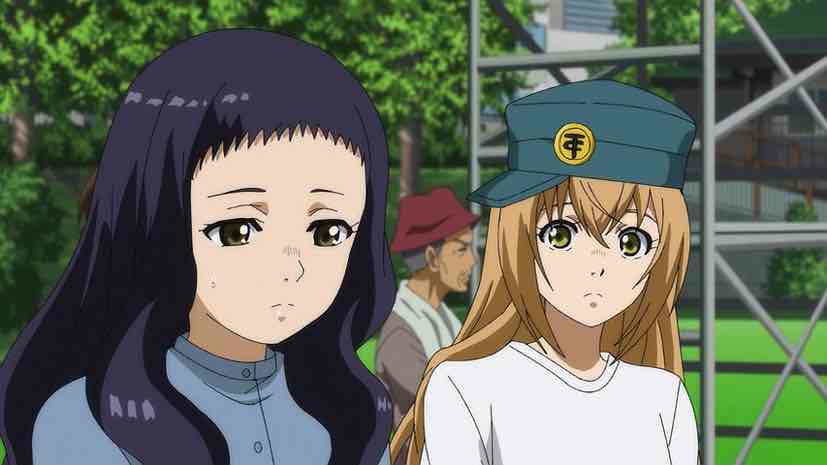 Today was an anime Gods giveth, and anime Gods taketh away kind of day. The headline was the news (and boy, did they make us wait for it) that the new Rurouni Kenshin anime would indeed be a reboot from the first chapter. We don’t know details like length (pretty crucial, since the “Jinchuu” Arc is the whole point), but that’s probably an announcement I’ve been waiting for longer than any other since I became an anime fan. It’s complicated where RK is concerned, no question, but that reveal was a very big deal.
Today was an anime Gods giveth, and anime Gods taketh away kind of day. The headline was the news (and boy, did they make us wait for it) that the new Rurouni Kenshin anime would indeed be a reboot from the first chapter. We don’t know details like length (pretty crucial, since the “Jinchuu” Arc is the whole point), but that’s probably an announcement I’ve been waiting for longer than any other since I became an anime fan. It’s complicated where RK is concerned, no question, but that reveal was a very big deal.
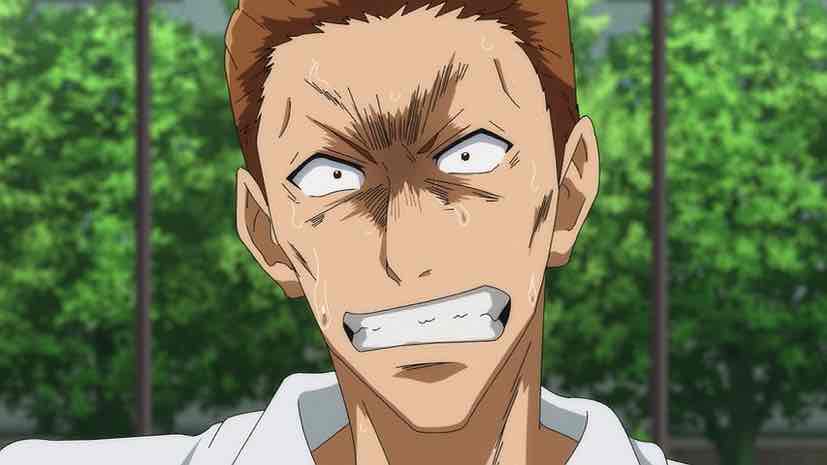 Unfortunately, I didn’t get the piece of news I was hoping – if not necessarily expecting – to see today. The fact that we didn’t get a sequel announcement at the end of this episode of Ao Ashi (or earlier) doesn’t mean it’s not happening. I’ve seen it work both ways with NHK series, and we could still get bailed out. But to use a sports analogy (or three), it shouldn’t be that close. It should be a slam dunk. A sitter. The manga was already a big seller, and got a truly sizable boost from the anime. The adaptation has been well-received by critics and fans. Ao Ashi is a major commercial powerhouse, and we’re not that far removed from a time in anime where it being a long-running adaptation would be a foregone conclusion.
Unfortunately, I didn’t get the piece of news I was hoping – if not necessarily expecting – to see today. The fact that we didn’t get a sequel announcement at the end of this episode of Ao Ashi (or earlier) doesn’t mean it’s not happening. I’ve seen it work both ways with NHK series, and we could still get bailed out. But to use a sports analogy (or three), it shouldn’t be that close. It should be a slam dunk. A sitter. The manga was already a big seller, and got a truly sizable boost from the anime. The adaptation has been well-received by critics and fans. Ao Ashi is a major commercial powerhouse, and we’re not that far removed from a time in anime where it being a long-running adaptation would be a foregone conclusion.
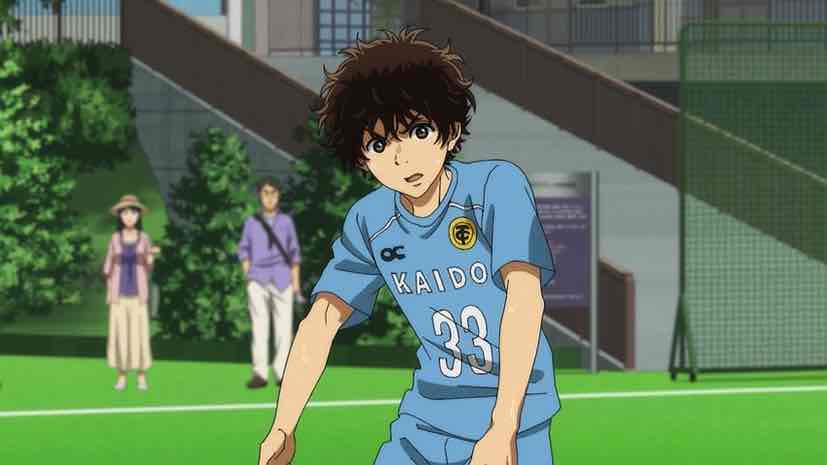 Well, the production committee system has changed all that. It’s changed a lot of things, none for the better. I would argue any financial model where an extended anime for Ao Ashi is even debatable is a broken – and unsustainable – financial model. But it’s our model, until it collapses under its own weight. Again, S2 could still happen – this franchise is big enough that it could transcend the idiocy of the system – but I’d put it at no better than 50-50. And that means for now we have to be content with 24 episodes, and a “read the manga” ending. But damn – what a batch of episodes they were.
Well, the production committee system has changed all that. It’s changed a lot of things, none for the better. I would argue any financial model where an extended anime for Ao Ashi is even debatable is a broken – and unsustainable – financial model. But it’s our model, until it collapses under its own weight. Again, S2 could still happen – this franchise is big enough that it could transcend the idiocy of the system – but I’d put it at no better than 50-50. And that means for now we have to be content with 24 episodes, and a “read the manga” ending. But damn – what a batch of episodes they were.
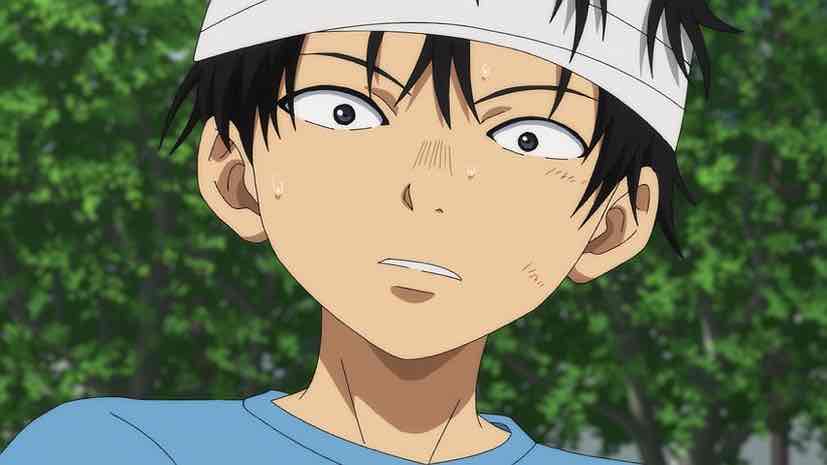 For me, Ao Ashi goes down as easily one of the three best soccer anime of the past 15 years, along with Giant Killing and Ginga e Kickoff. Soccer has been well served by manga, but less well-served by anime than its competition for Japan’s biggest sport, baseball. Those three series could hardly be more different (though both AA and GK are seinen), each focusing on a different level of soccer with exacting detail. If you love the game as I do, a series that nails both the technical side of the game and the storytelling side of the medium is a treasure indeed. There’s not a lot I would change about Ao Ashi, to be honest.
For me, Ao Ashi goes down as easily one of the three best soccer anime of the past 15 years, along with Giant Killing and Ginga e Kickoff. Soccer has been well served by manga, but less well-served by anime than its competition for Japan’s biggest sport, baseball. Those three series could hardly be more different (though both AA and GK are seinen), each focusing on a different level of soccer with exacting detail. If you love the game as I do, a series that nails both the technical side of the game and the storytelling side of the medium is a treasure indeed. There’s not a lot I would change about Ao Ashi, to be honest.
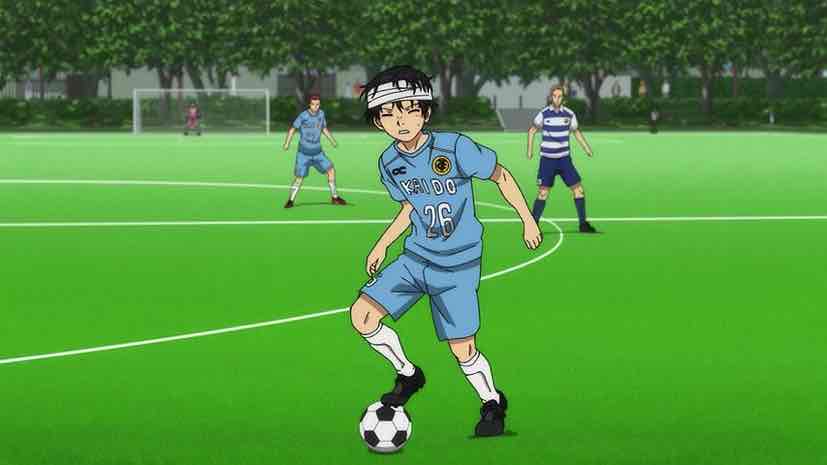 For a player whose greatest attribute is his mind, development can happen at a breathtaking pace. Ashito fits that description, and once Esperion asserts its dominance over Musashino we can see his growth kick into overdrive. Yes, zonal marking is prevalent in soccer today and yes, diagonal runs by fullbacks can cause it problems. Mostly though, this is Ashito finally understanding that sowing chaos is the way to unlock a defense. He becomes the conductor on the pitch he was always destined to be, moving his teammates almost by instinct. Draw the opponent out of position and exploit the vacated space – it’s as elemental as attacking football gets but to actually do it consistently is really hard, and requires the right players. That’s why Johan Cruyff is considered such a genius.
For a player whose greatest attribute is his mind, development can happen at a breathtaking pace. Ashito fits that description, and once Esperion asserts its dominance over Musashino we can see his growth kick into overdrive. Yes, zonal marking is prevalent in soccer today and yes, diagonal runs by fullbacks can cause it problems. Mostly though, this is Ashito finally understanding that sowing chaos is the way to unlock a defense. He becomes the conductor on the pitch he was always destined to be, moving his teammates almost by instinct. Draw the opponent out of position and exploit the vacated space – it’s as elemental as attacking football gets but to actually do it consistently is really hard, and requires the right players. That’s why Johan Cruyff is considered such a genius.
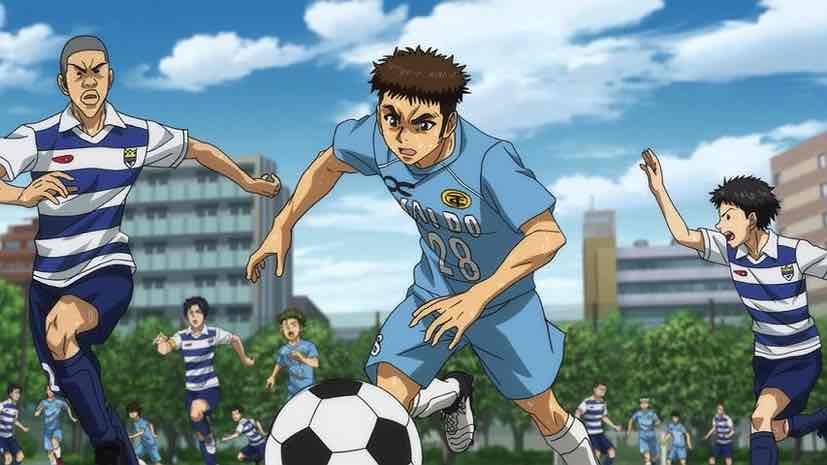 It’s a measure of Ashito’s influence on this team that he’s able to goad the self-described “safe and sensible” Asari into becoming an improvisational threat from right back. This is how Fukuda-san wants to play, period, and that means anyone who hopes to progress in Esperion had better understand that. I was glad it was Ashito who got the third goal, because he did all the work building up to it (and Eisaku really should have finished it for his second of the match). Ashito has also benefitted from now understanding how defenders think – especially what they hate – and it’s tempting to think this is part of some master plan by Fukuda to develop Ashito as a striker. But that’s wishful thinking, clearly.
It’s a measure of Ashito’s influence on this team that he’s able to goad the self-described “safe and sensible” Asari into becoming an improvisational threat from right back. This is how Fukuda-san wants to play, period, and that means anyone who hopes to progress in Esperion had better understand that. I was glad it was Ashito who got the third goal, because he did all the work building up to it (and Eisaku really should have finished it for his second of the match). Ashito has also benefitted from now understanding how defenders think – especially what they hate – and it’s tempting to think this is part of some master plan by Fukuda to develop Ashito as a striker. But that’s wishful thinking, clearly.
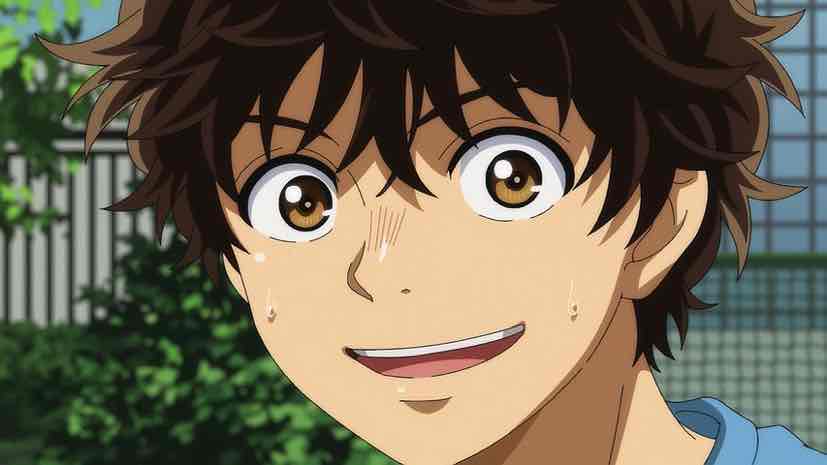 I was also glad Ashito took the time to properly thank Date-san for his promotion to the A team – along with Kuroda, Togashi, and Eisaku – though to do so was only as one would expect from him. It’s a tough lot being the B team coach – when your players start to really excel, your boss rips them away from you. Date has been a frustrating figure at times, but once the initial ruse was exposed it’s been clear that he’s always had Ashi-kun’s back. What Date needs more than anything is to overcome his obvious lack of self-confidence and step out of Fukuda’s shadow, but that’s complicated by the fact that his role with Esperion is pretty much to be just that.
I was also glad Ashito took the time to properly thank Date-san for his promotion to the A team – along with Kuroda, Togashi, and Eisaku – though to do so was only as one would expect from him. It’s a tough lot being the B team coach – when your players start to really excel, your boss rips them away from you. Date has been a frustrating figure at times, but once the initial ruse was exposed it’s been clear that he’s always had Ashi-kun’s back. What Date needs more than anything is to overcome his obvious lack of self-confidence and step out of Fukuda’s shadow, but that’s complicated by the fact that his role with Esperion is pretty much to be just that.
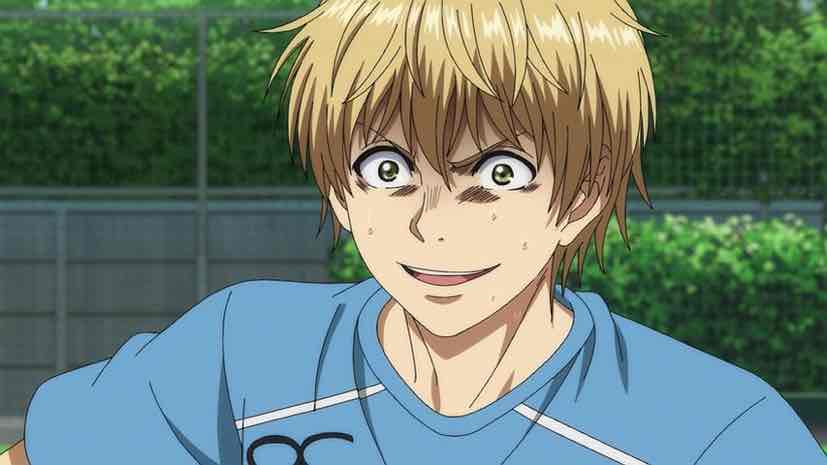 And then we have Hana. I figured that relationship was going to get some attention here, though perhaps not as much as it actually did. Her chemistry with Ashi is off the charts and always has been, and I find their interplay to be pretty realistic in context. That matter of him reminding her of the guy she’s in love with (who’s her step-brother) is no small thing, but they’re already growing past that. What he gets from the relationship (unconditional support and concern) is more obvious than what she does, but that too is something I think they can grow through with time. The hug was a lovely capstone to their anime arc, but the kiss on the forehead – now that was the exclamation point.
And then we have Hana. I figured that relationship was going to get some attention here, though perhaps not as much as it actually did. Her chemistry with Ashi is off the charts and always has been, and I find their interplay to be pretty realistic in context. That matter of him reminding her of the guy she’s in love with (who’s her step-brother) is no small thing, but they’re already growing past that. What he gets from the relationship (unconditional support and concern) is more obvious than what she does, but that too is something I think they can grow through with time. The hug was a lovely capstone to their anime arc, but the kiss on the forehead – now that was the exclamation point.
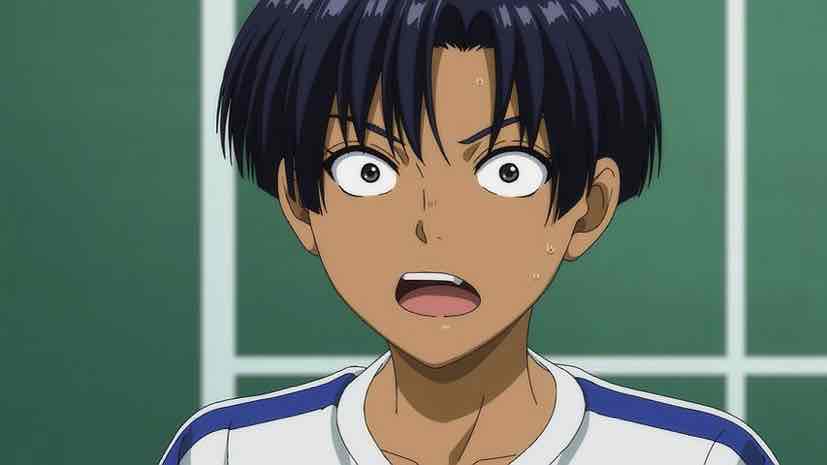 A lot of series which adapt ongoing manga could take a lesson from this episode in how to provide some closure. This wasn’t the end – not remotely close. But it was an ending, one which saw the characters getting ready to embrace their next great challenges. Ashito is a great kid and a wonderful protagonist, and it feels right to see him grow so much while remaining true to his essential nature. That’s what a character arc should look like, and what an anime ending should look like.
A lot of series which adapt ongoing manga could take a lesson from this episode in how to provide some closure. This wasn’t the end – not remotely close. But it was an ending, one which saw the characters getting ready to embrace their next great challenges. Ashito is a great kid and a wonderful protagonist, and it feels right to see him grow so much while remaining true to his essential nature. That’s what a character arc should look like, and what an anime ending should look like.
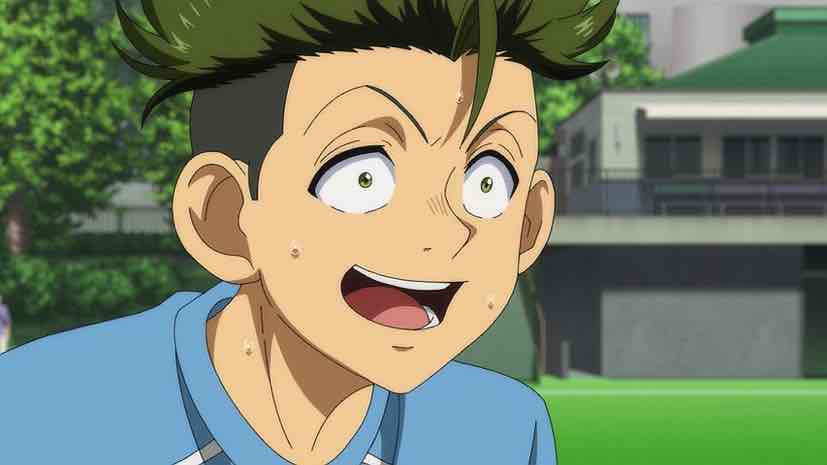 It’s out nature as fans to be greedy, but that shouldn’t preclude being grateful. Ao Ashi got an absolute cracker of an adaptation (albeit one which took a strangely long time to happen). It was faithful to the manga while tweaking what it needed to, featured a bunch of great performances by seiyuu outside the usual suspects, and showcased the great visuals and music we’ve come to expect from a Production I.G. sports anime. It was, in short, wonderful on every level – the soccer anime fans who love both those things have been hungering for and the adaptation this stellar manga deserved. I just wish there was more of it.
It’s out nature as fans to be greedy, but that shouldn’t preclude being grateful. Ao Ashi got an absolute cracker of an adaptation (albeit one which took a strangely long time to happen). It was faithful to the manga while tweaking what it needed to, featured a bunch of great performances by seiyuu outside the usual suspects, and showcased the great visuals and music we’ve come to expect from a Production I.G. sports anime. It was, in short, wonderful on every level – the soccer anime fans who love both those things have been hungering for and the adaptation this stellar manga deserved. I just wish there was more of it.


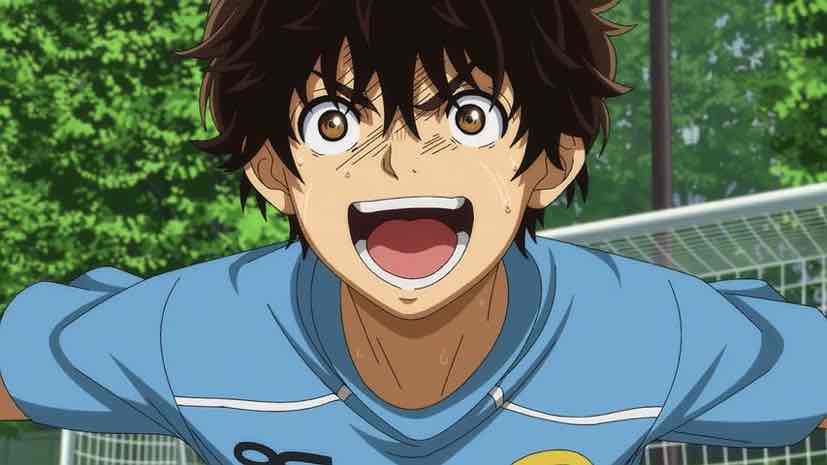
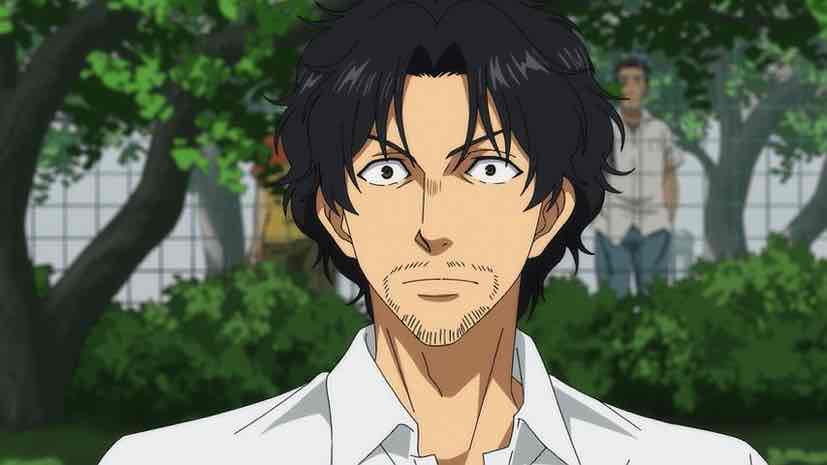
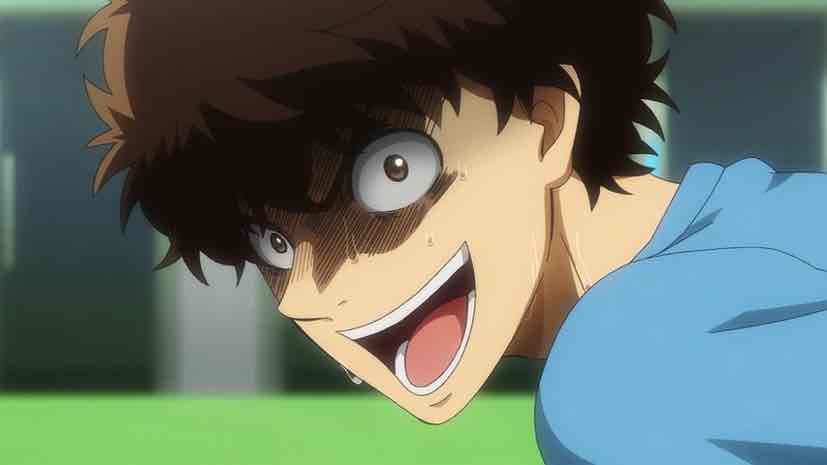
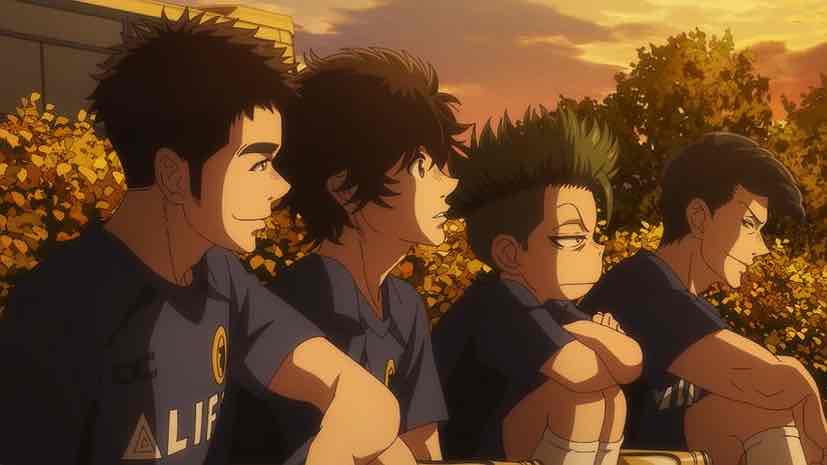
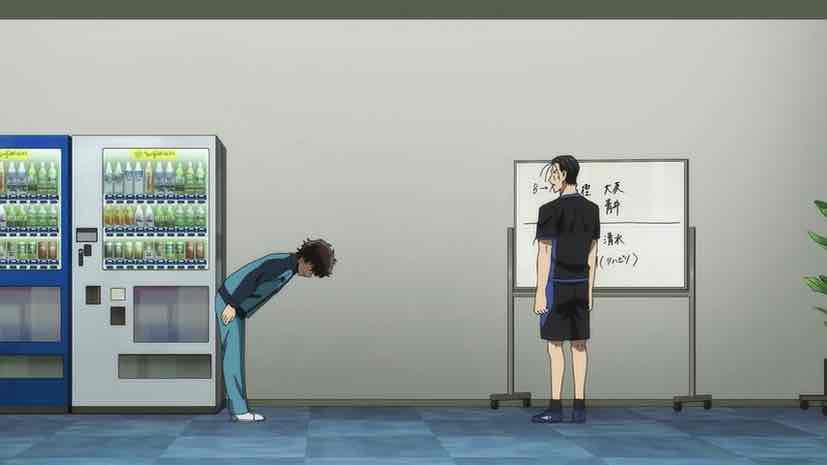
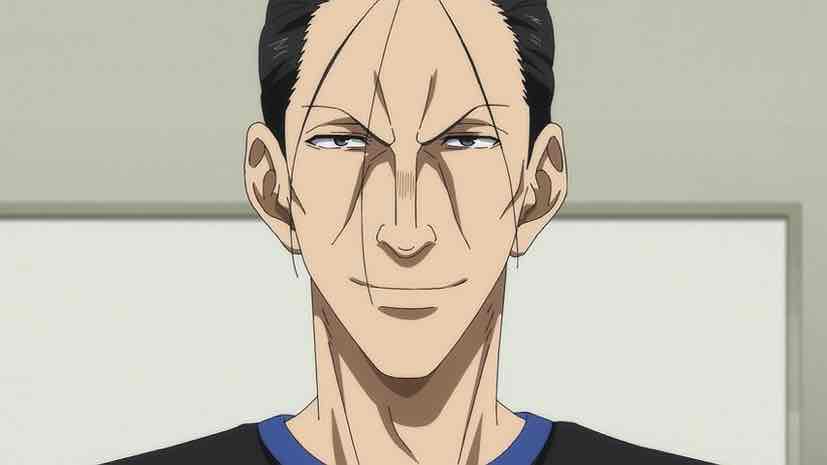
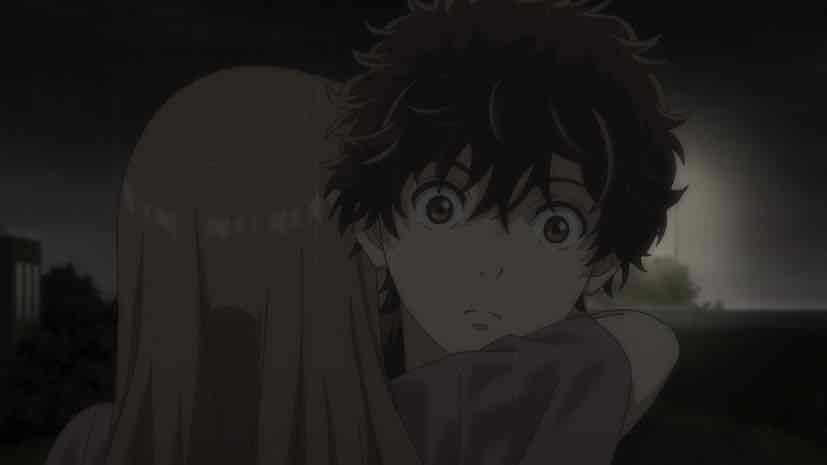
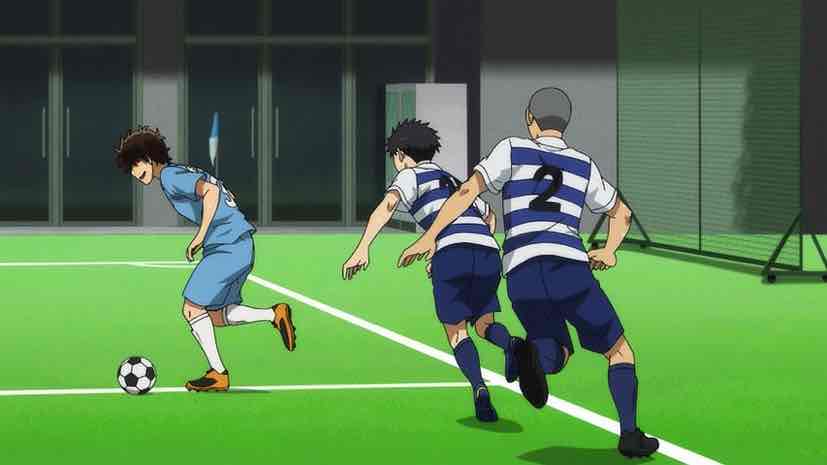
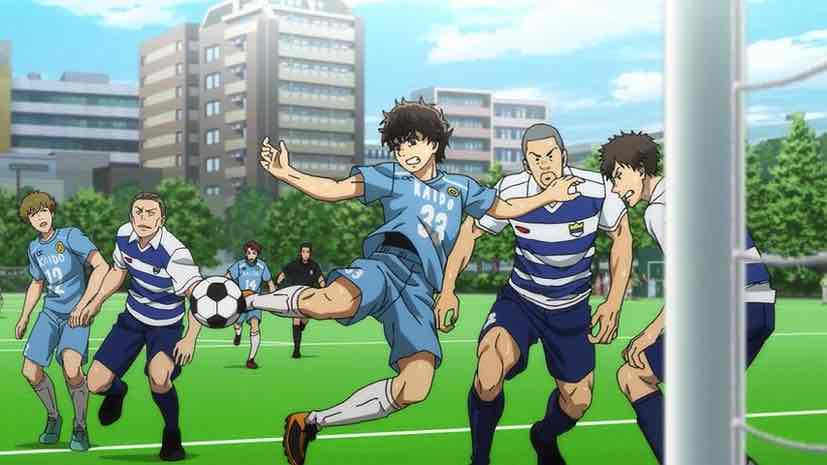
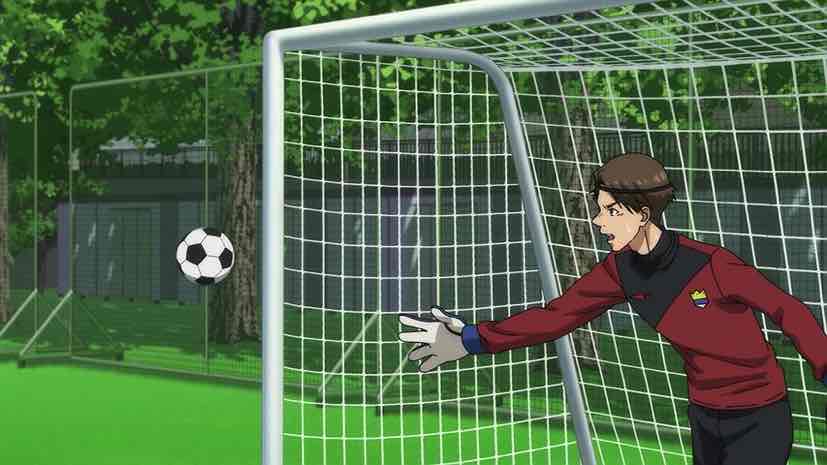
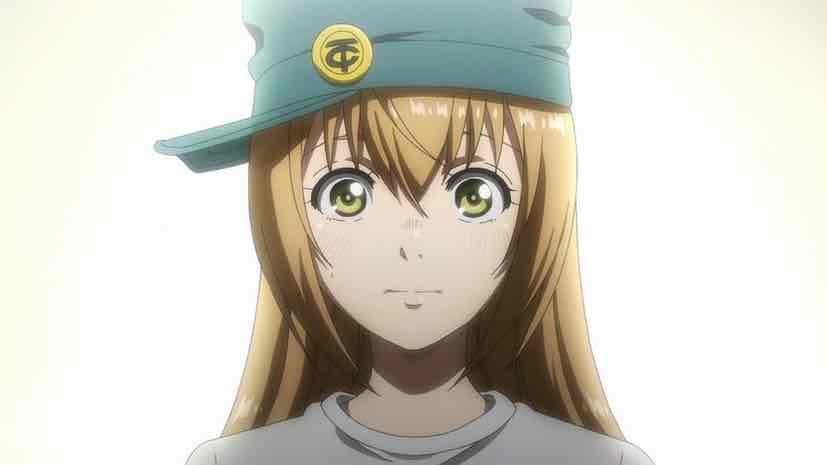
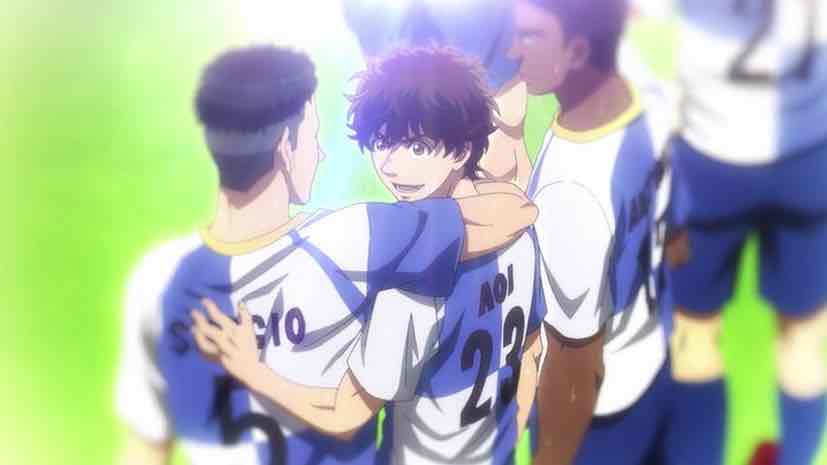
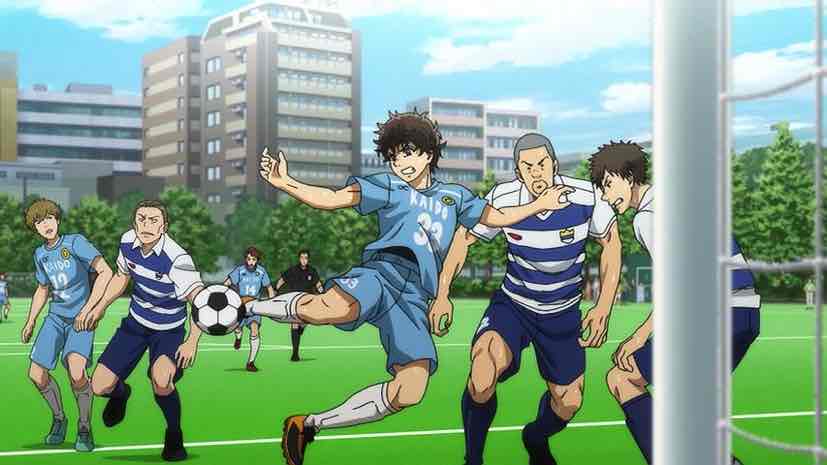
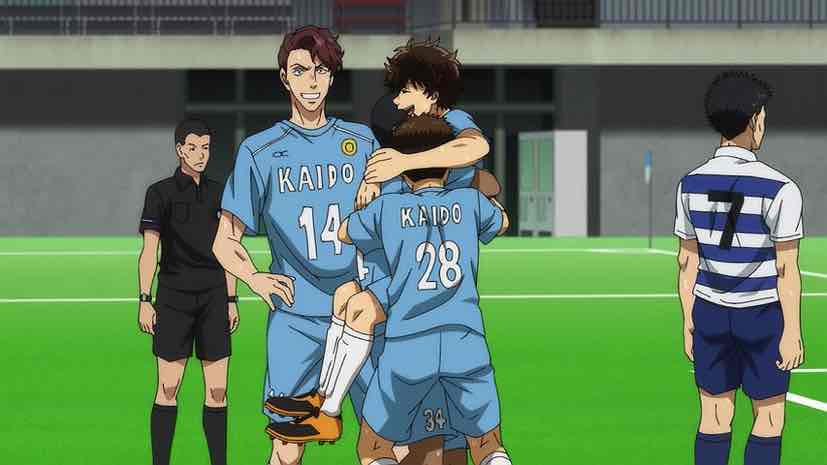
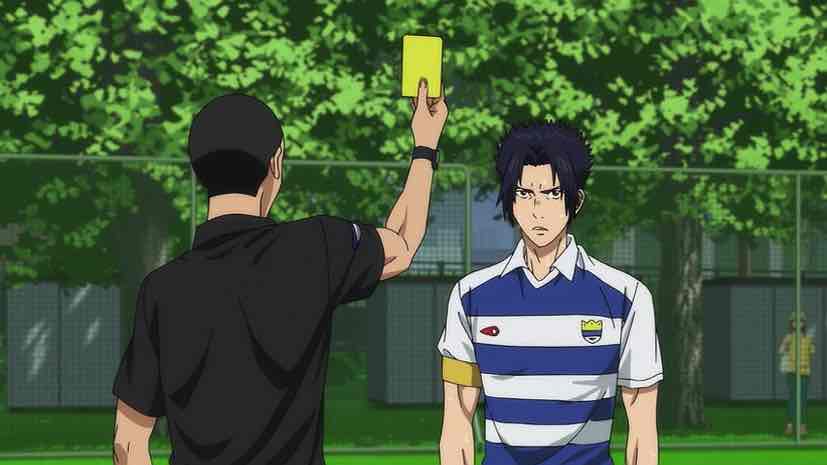
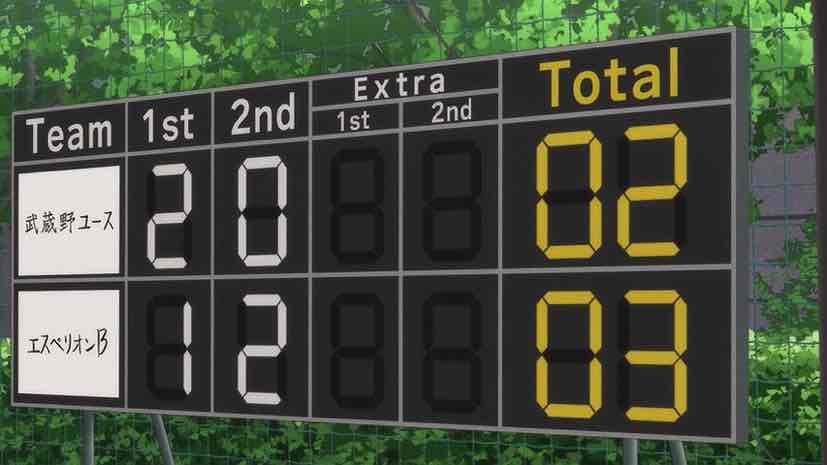
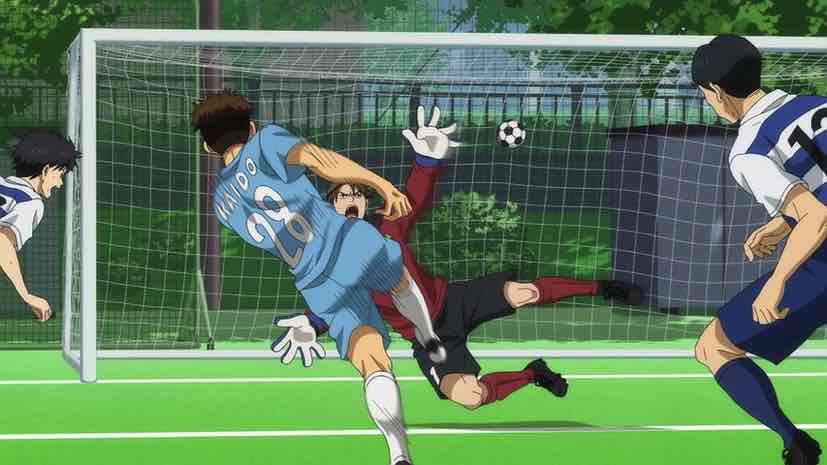
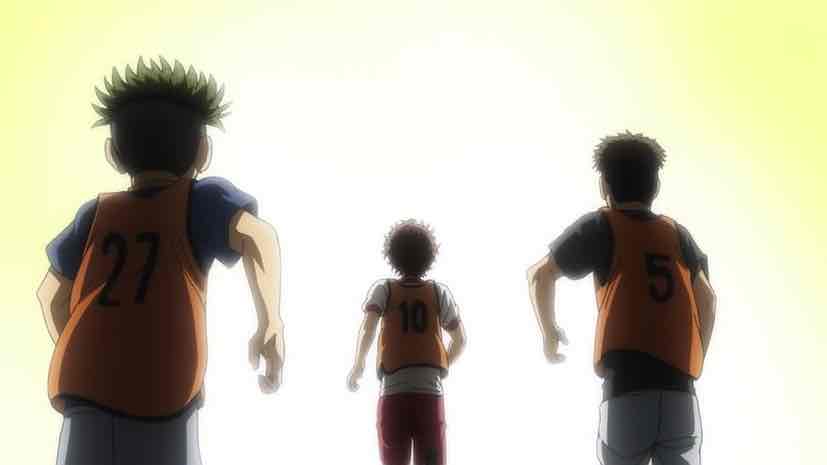
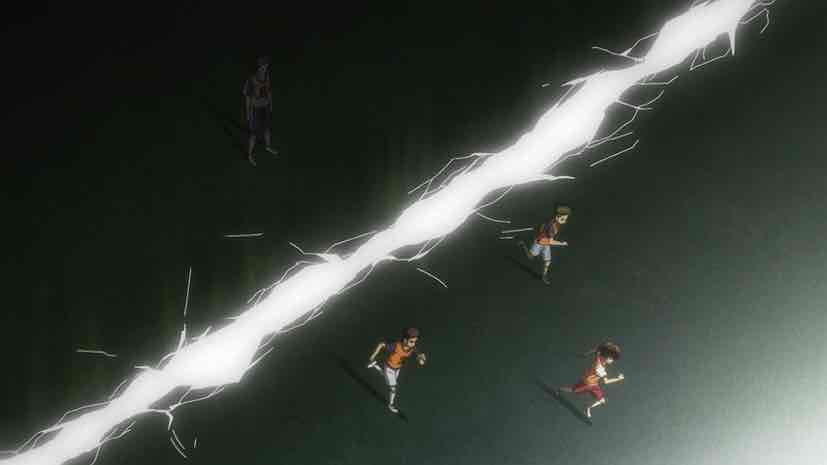
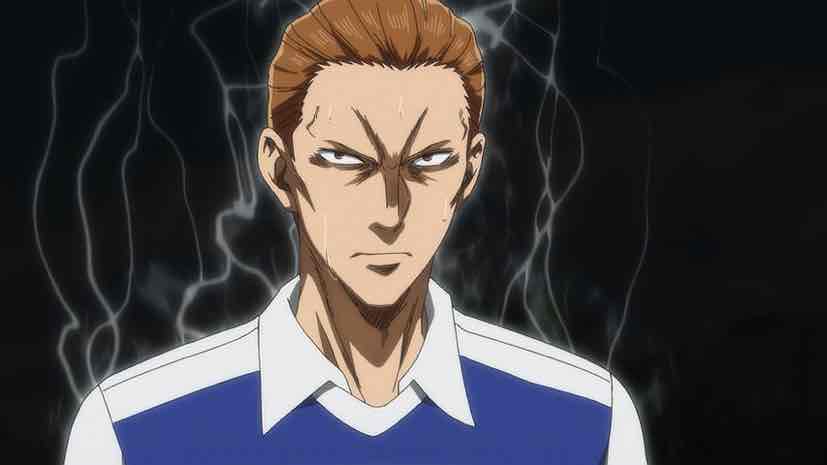
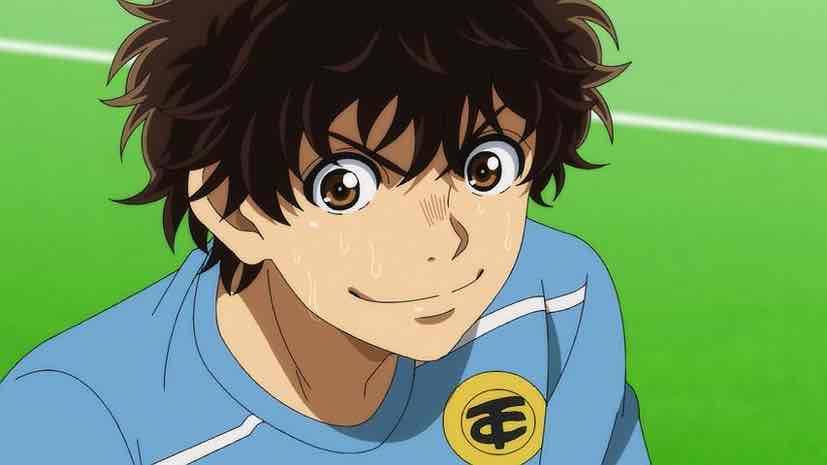
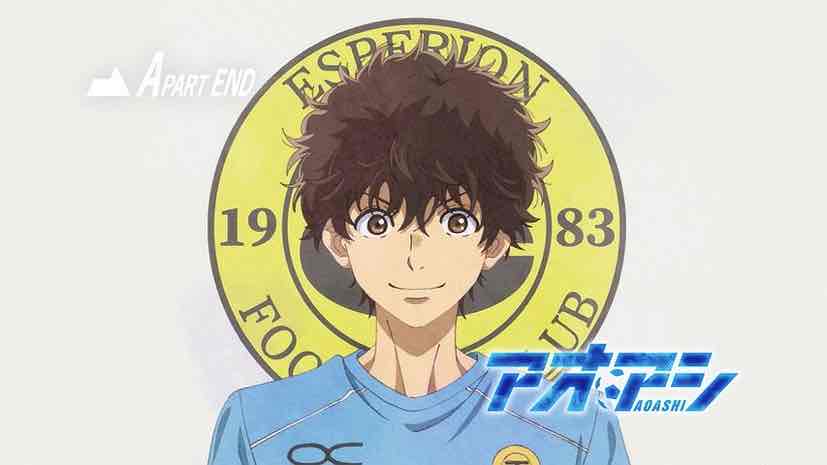
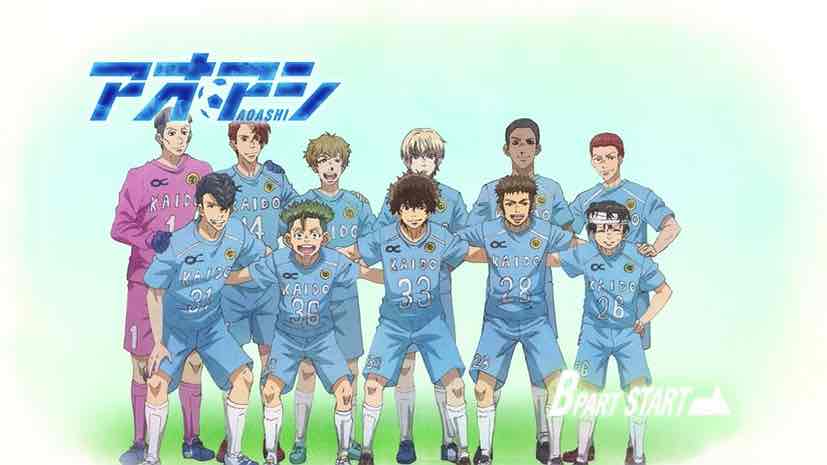
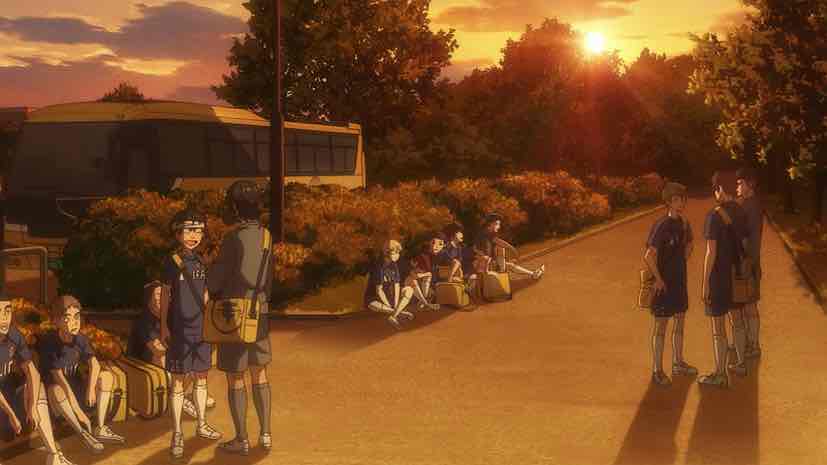
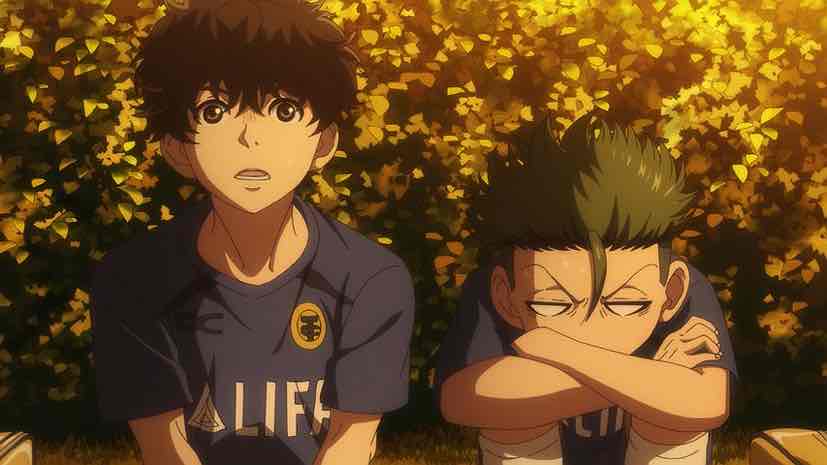
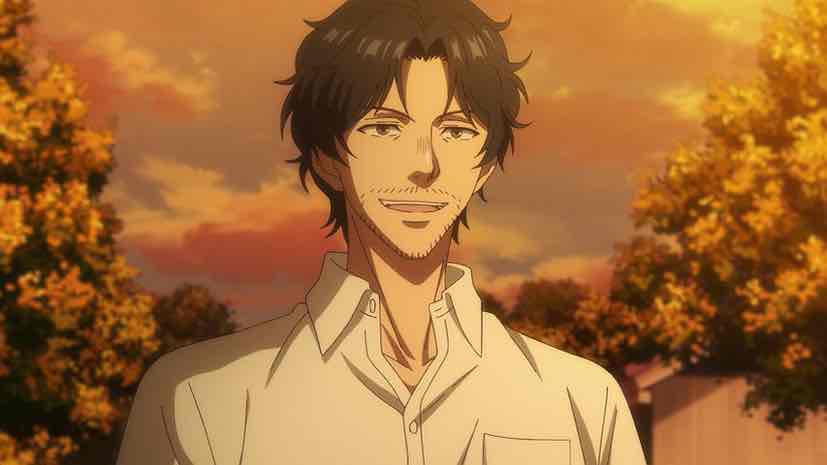
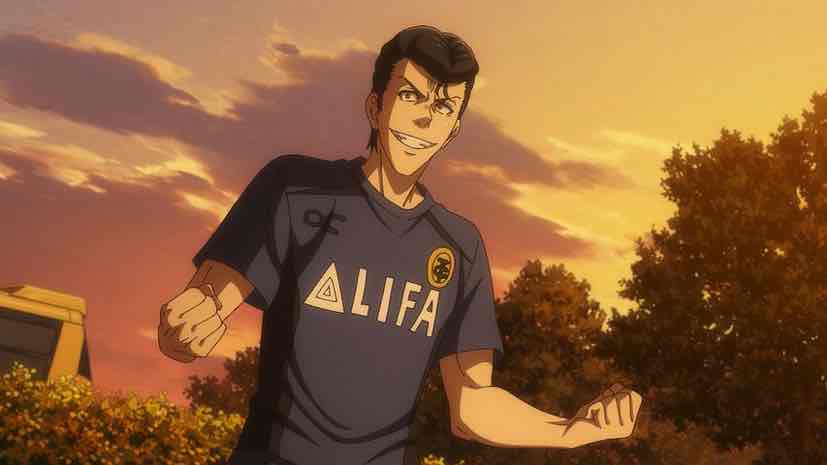
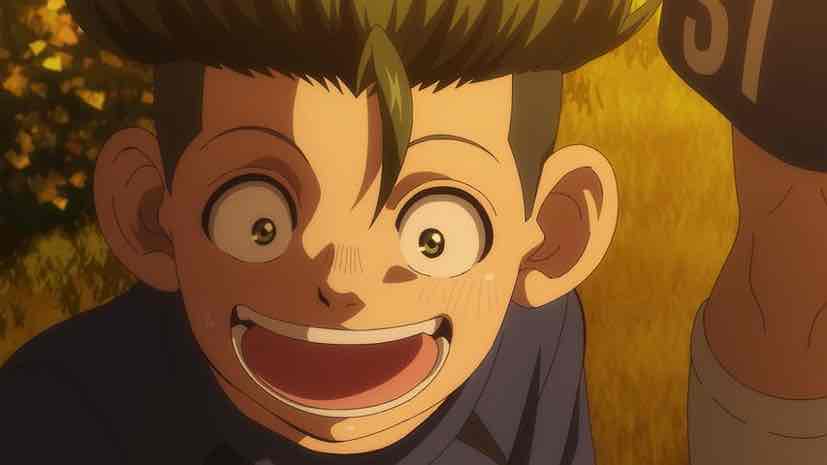
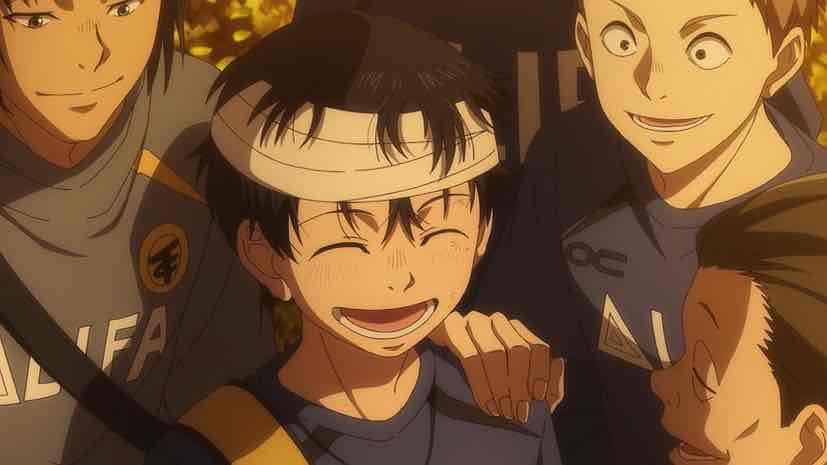
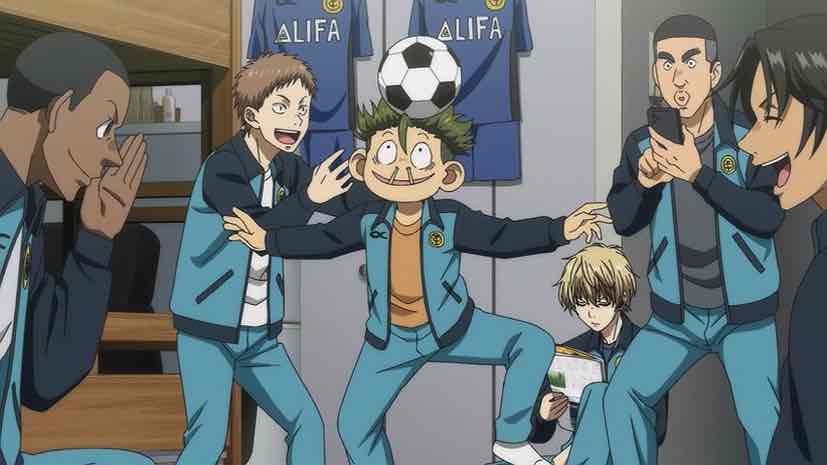
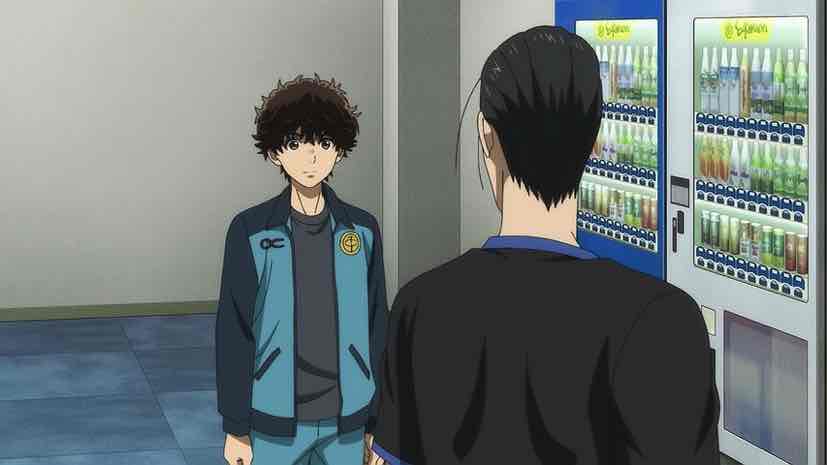
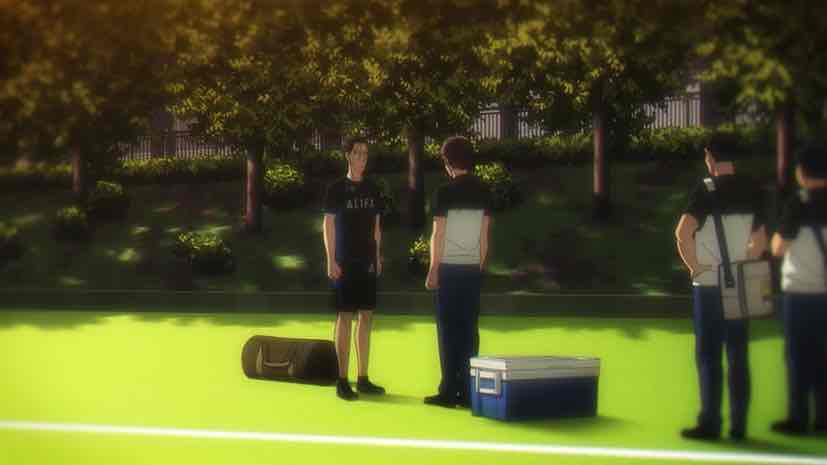
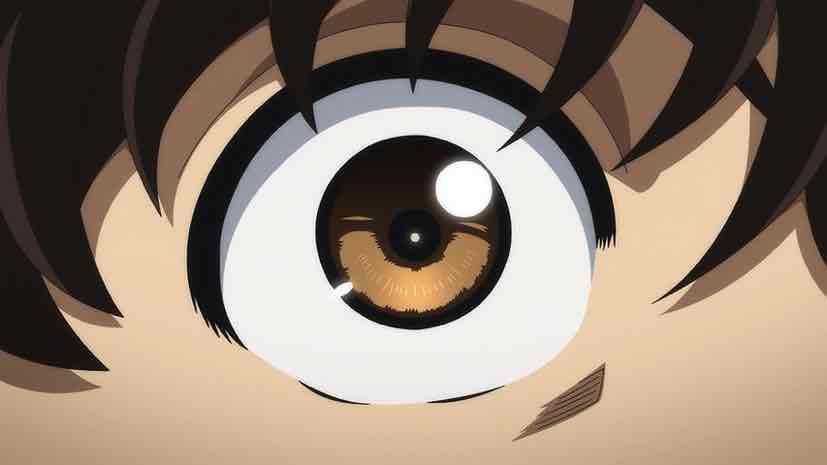
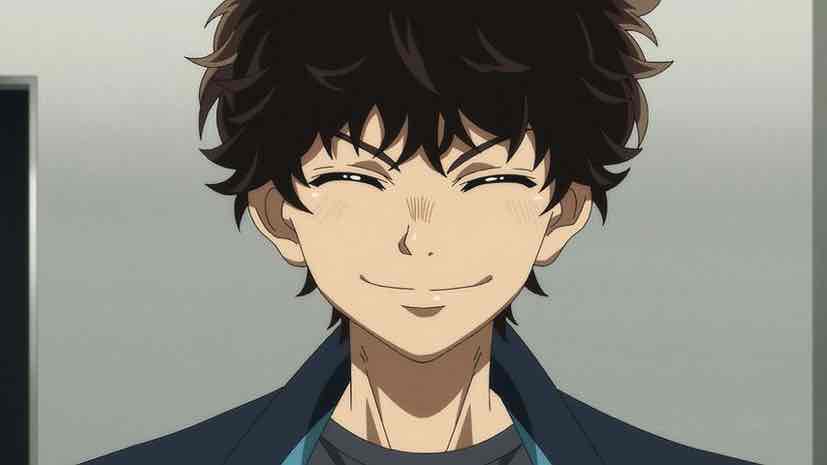
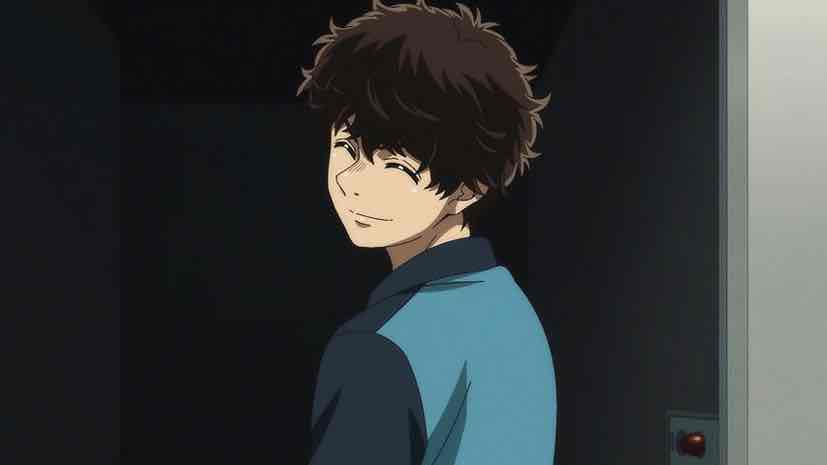

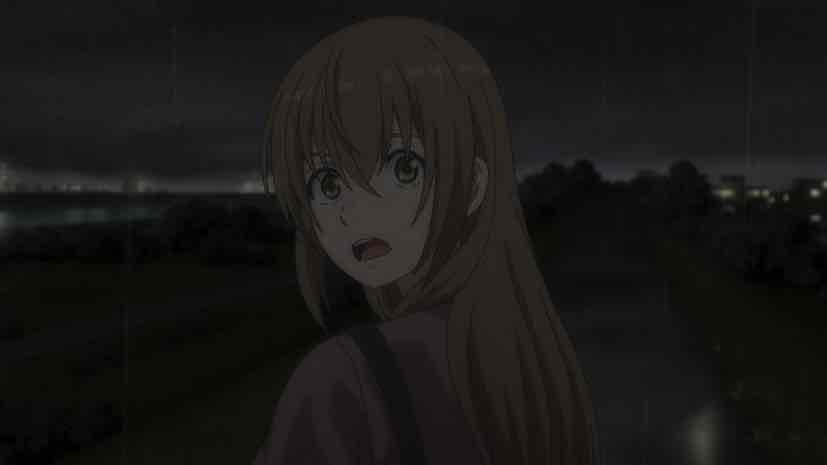
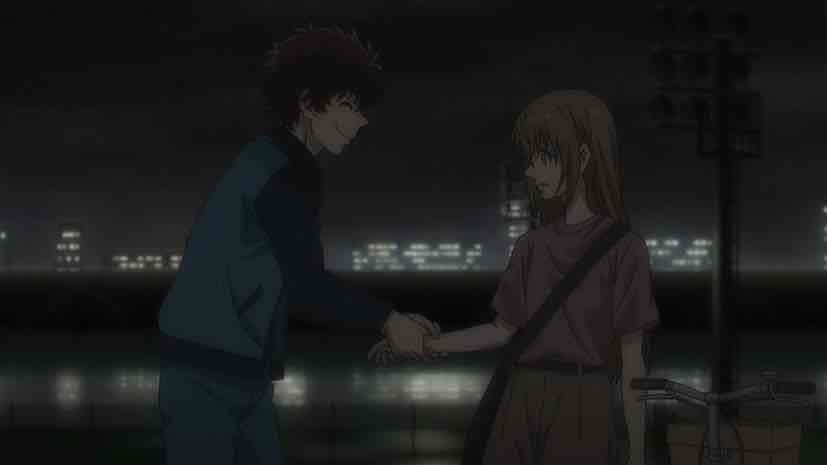
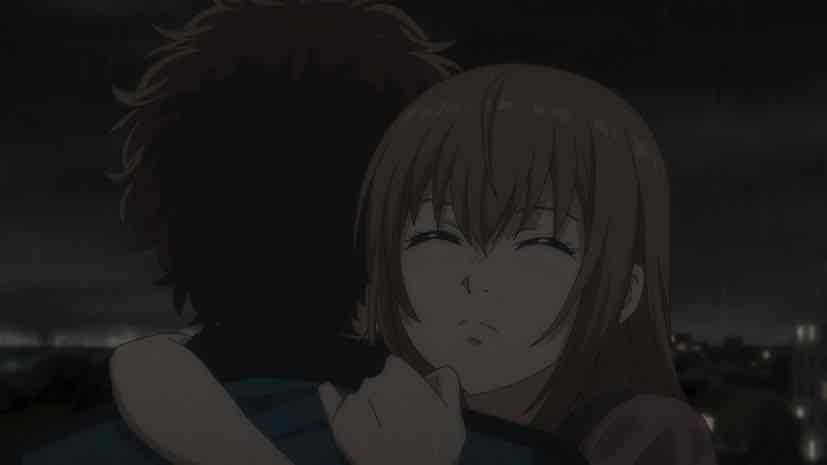
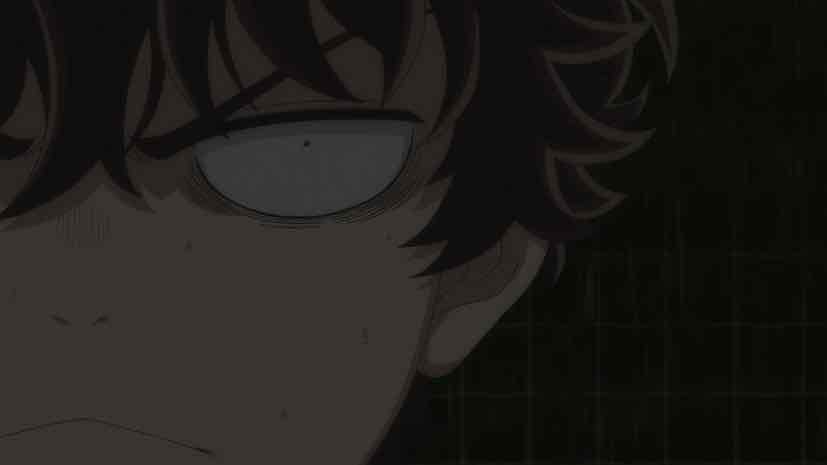
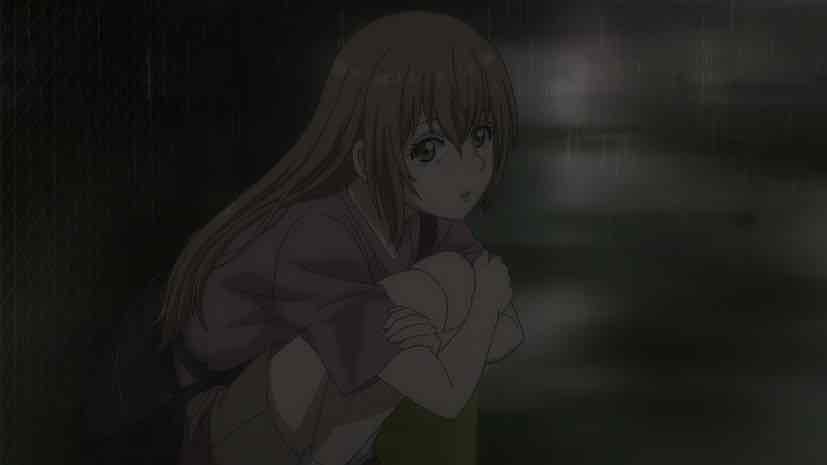
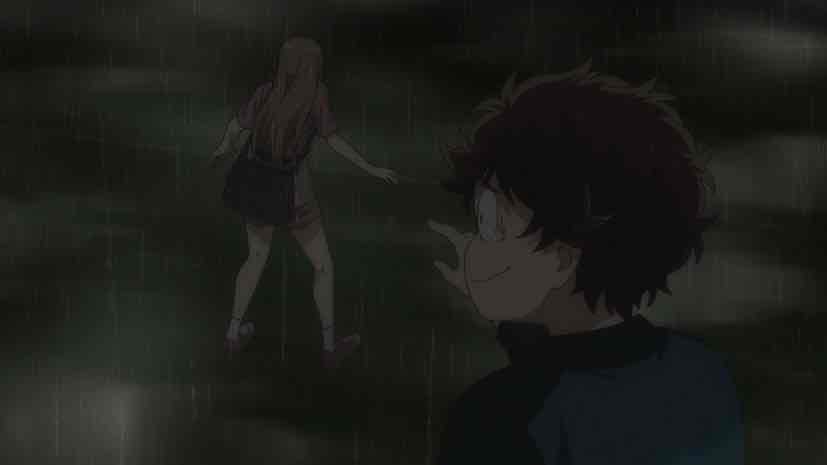
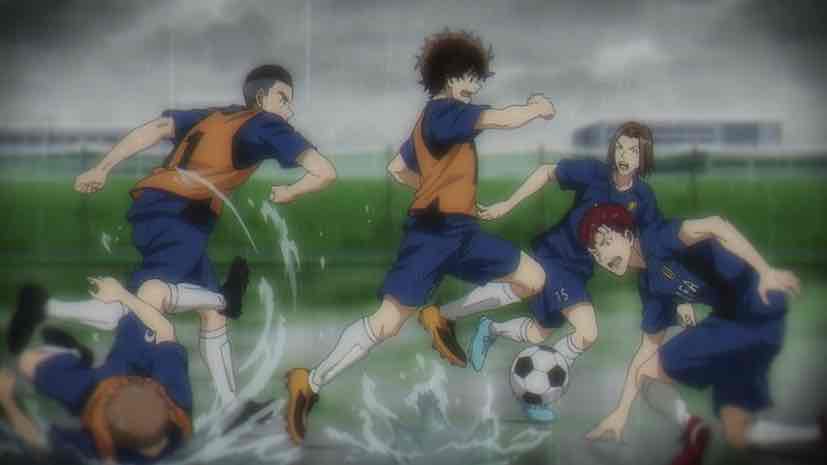
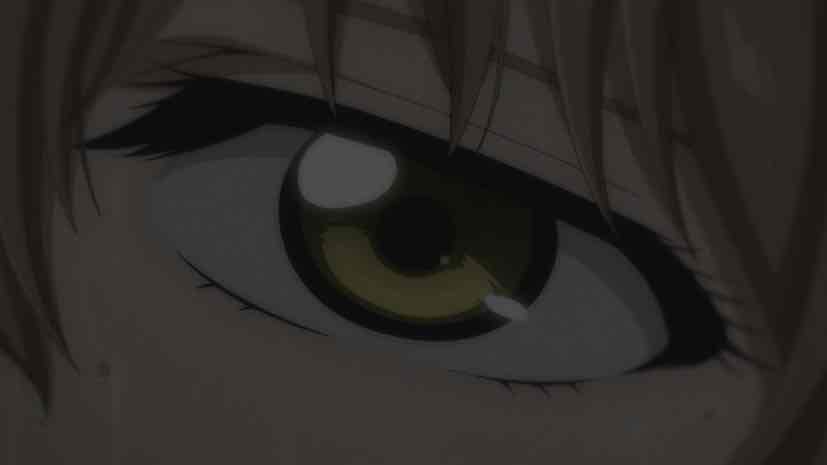
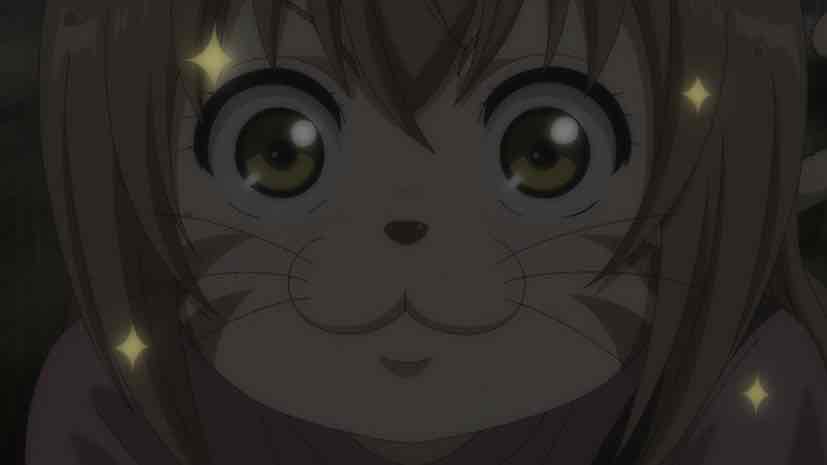
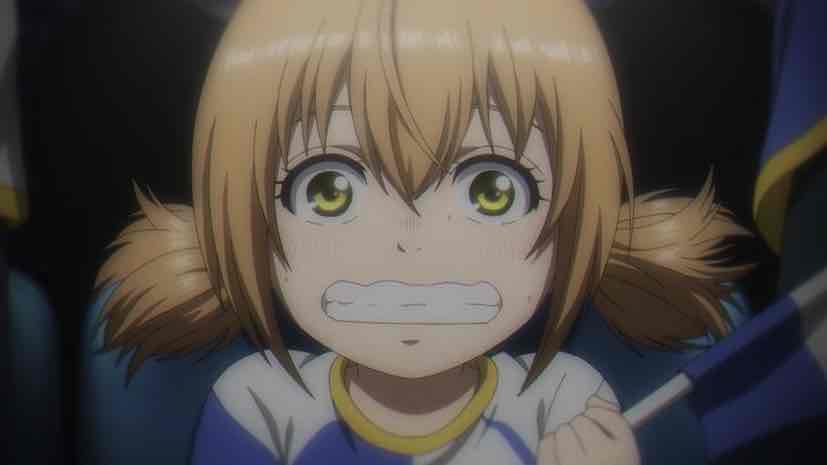
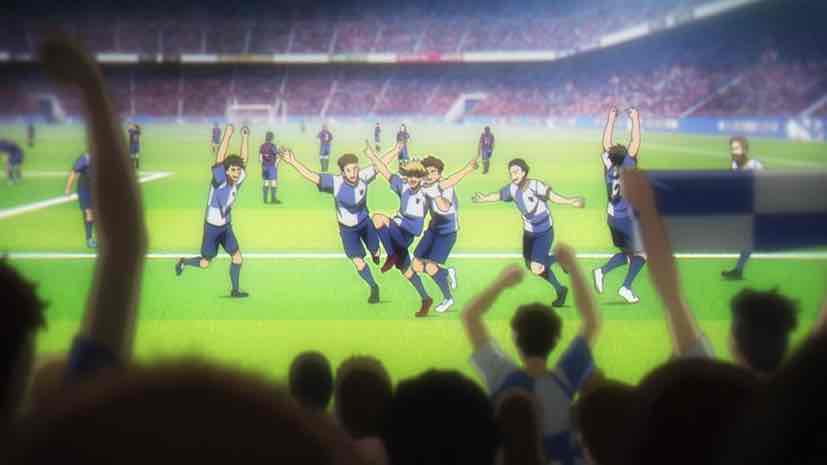
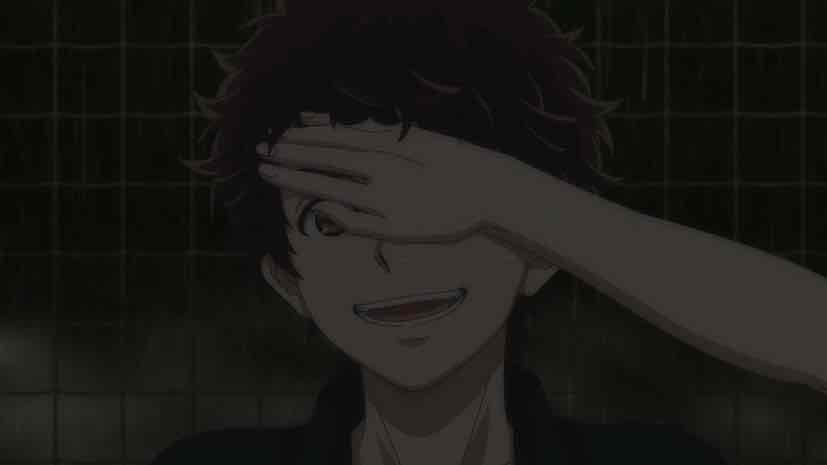
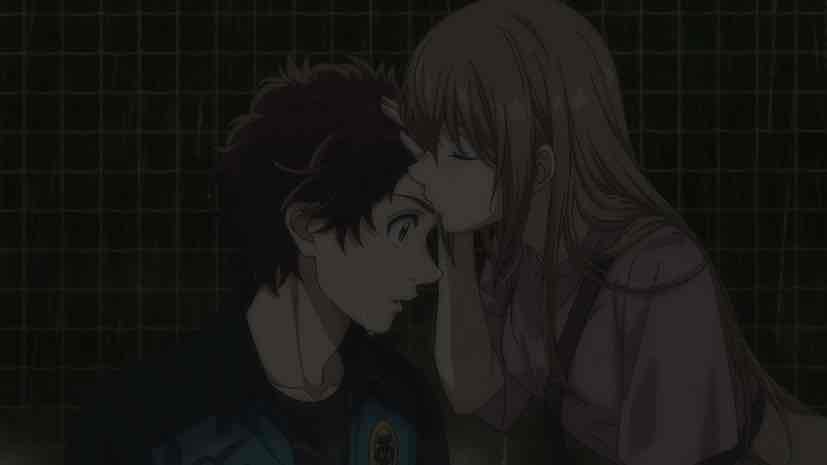
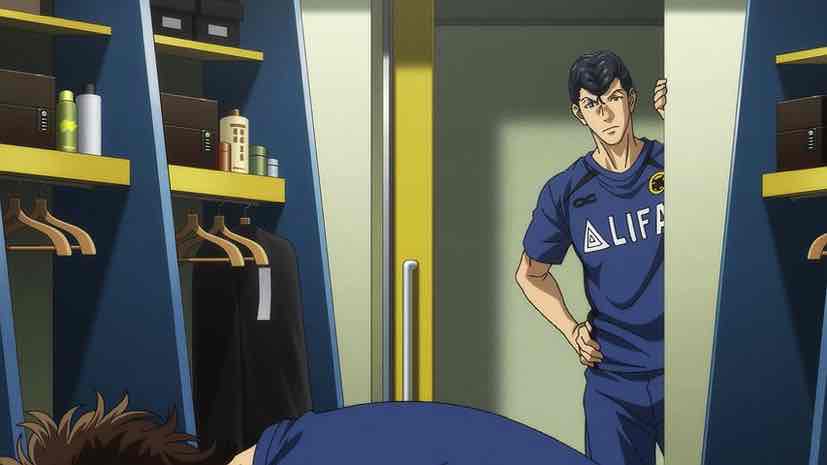
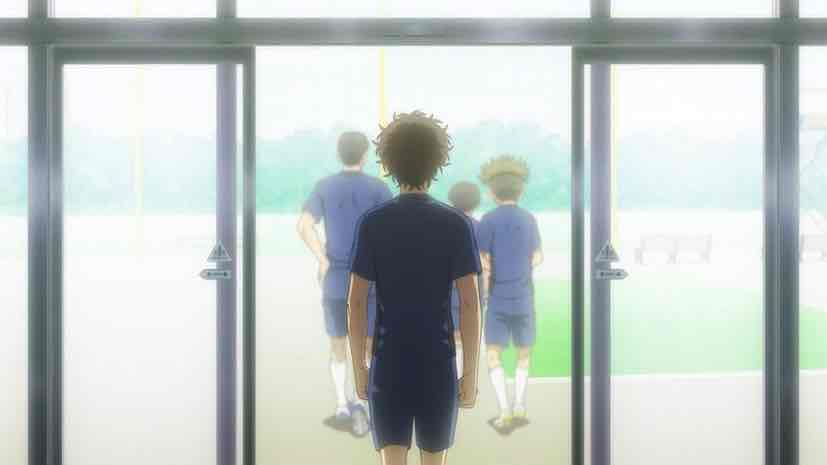
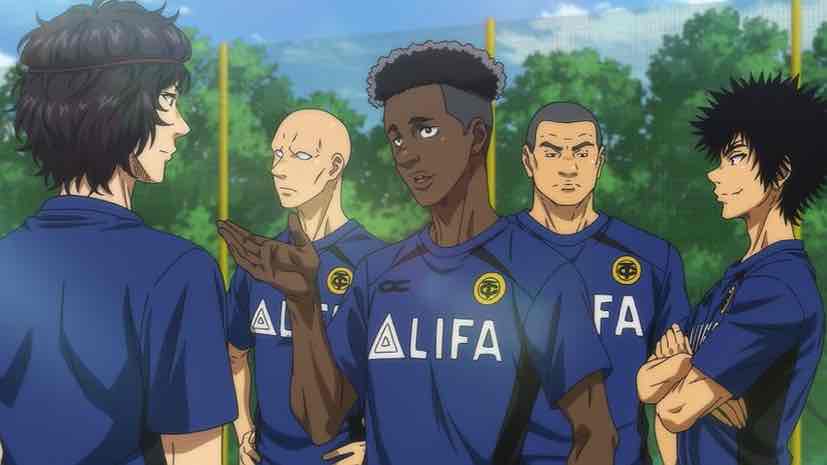
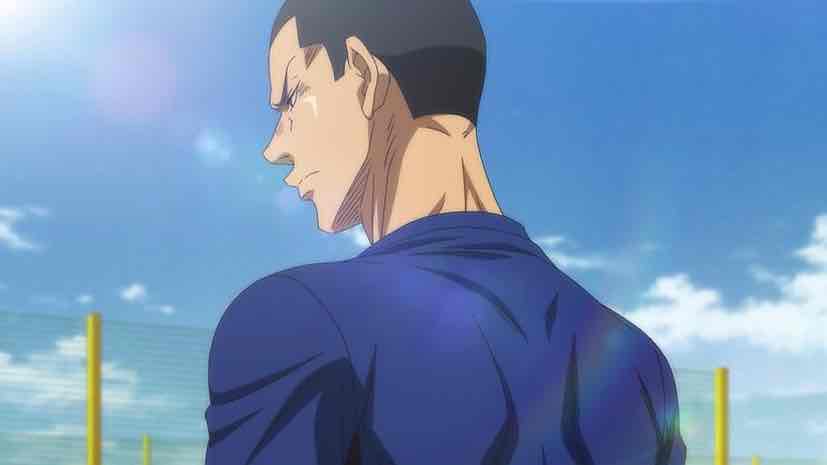
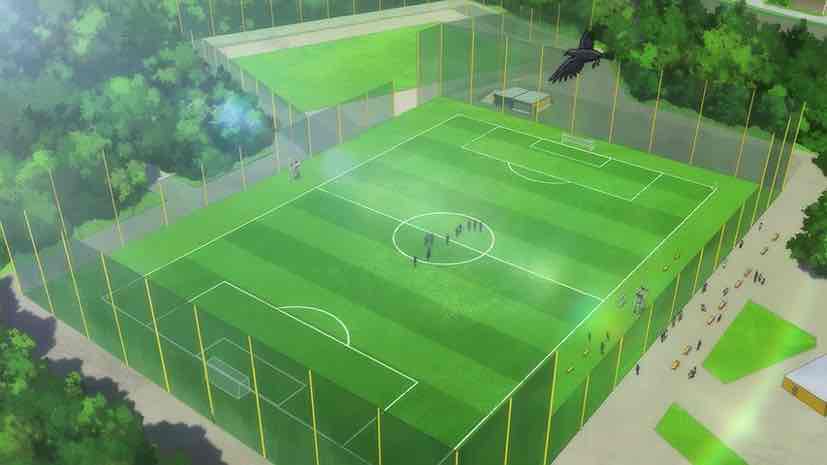
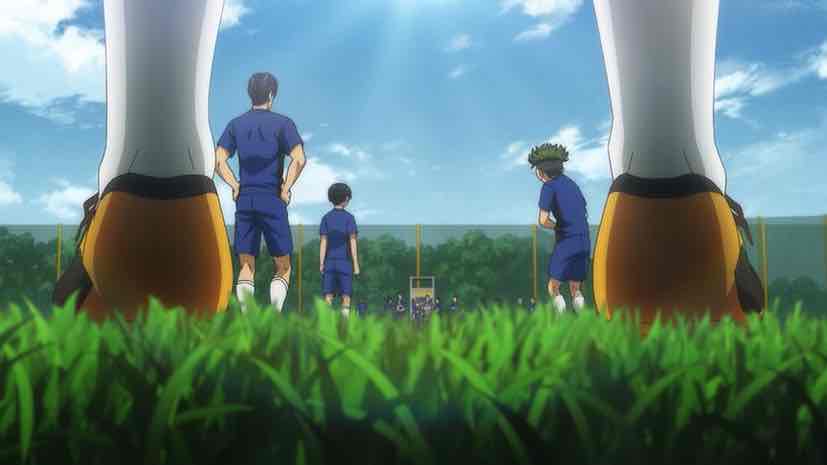
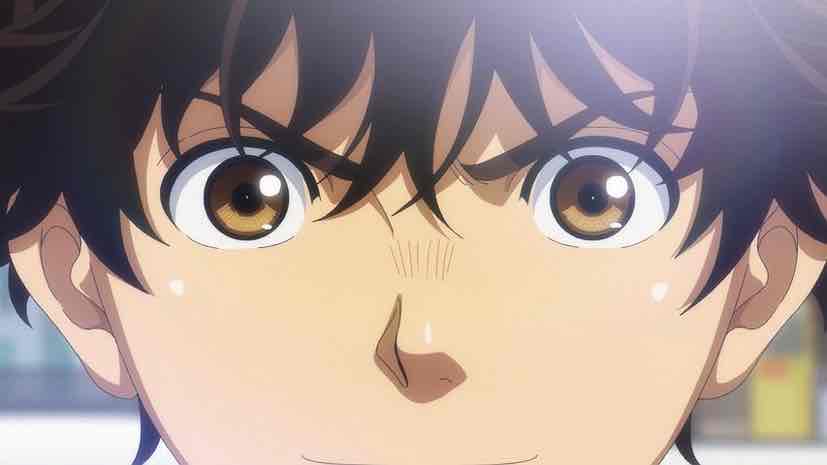
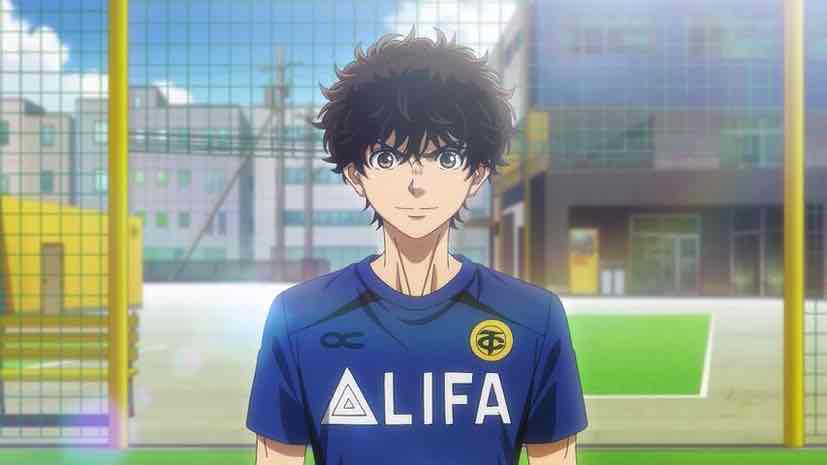
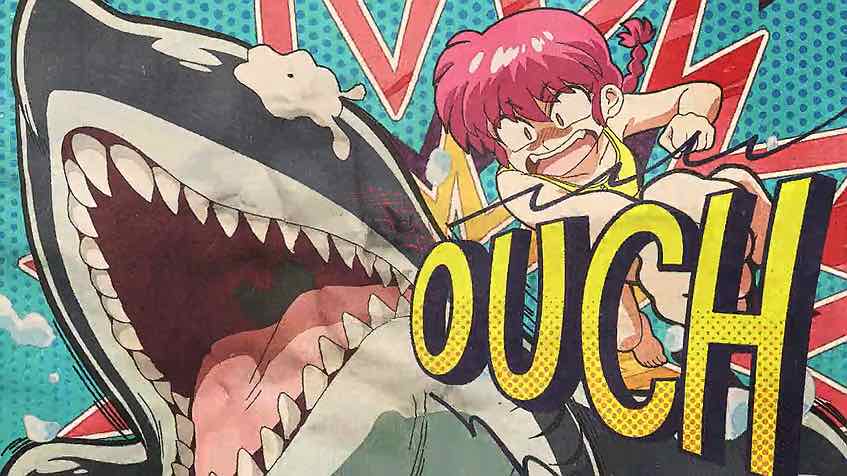
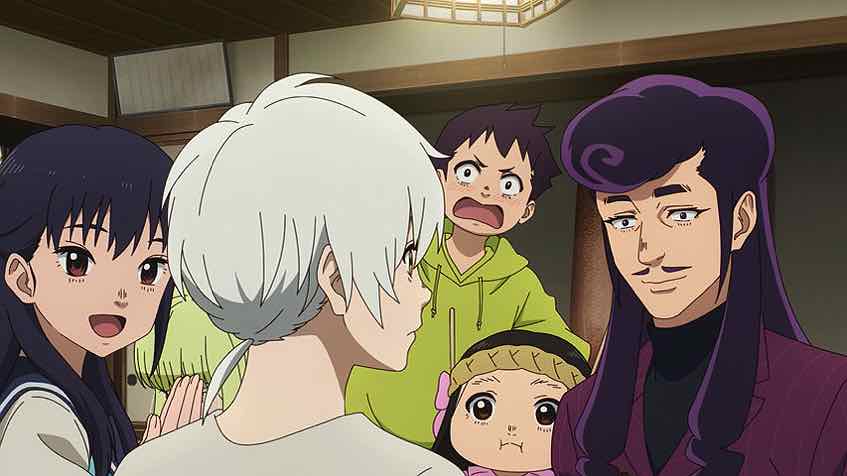
Haraga
September 25, 2022 at 4:06 amI dare them not to continue this adaptation. It was clearly designed with no mandatory sequel in mind, I just hope it’s because they weren’t sure initially it’d be as successful.
Guardian Enzo
September 25, 2022 at 9:56 amI want to think that, but…
Like I said – 50-50.
Michael
September 26, 2022 at 12:09 amI don’t know if anyone else noticed, but the transition of the last scene to the ending credits was absolutely brilliant. I don’t think I have ever seen that before. Whoever designed the latest ED knew how the shot would be used in the last scene. Just a very cool effect.
Guardian Enzo
September 26, 2022 at 7:47 amI did, and in fact I originally screenshot that but you have to cut down the number you use no matter how painful it is.
Yann
September 26, 2022 at 10:01 pmWhat a stellar anime… I don’t know anything about soccer, yet this was by far my favorite this season. I can’t imagine why they wouldn’t make a second season, but hey… After the last couple years, NOTHING surprises me anymore.
Jindujun93
September 27, 2022 at 3:12 amIf you have even a remote interest in checking out the manga with no S2 announcement in sight (yet), I can absolutely recommend it! Chapter 118 is the first one after the anime (and there’s plenty of content, haha). One bonus with the manga is that it includes a lot of stuff like diagrams etc as a visual aid for all the tactical stuff, so even if you don’t know much of the soccer, the explanations are very easy to follow in the manga too, haha.